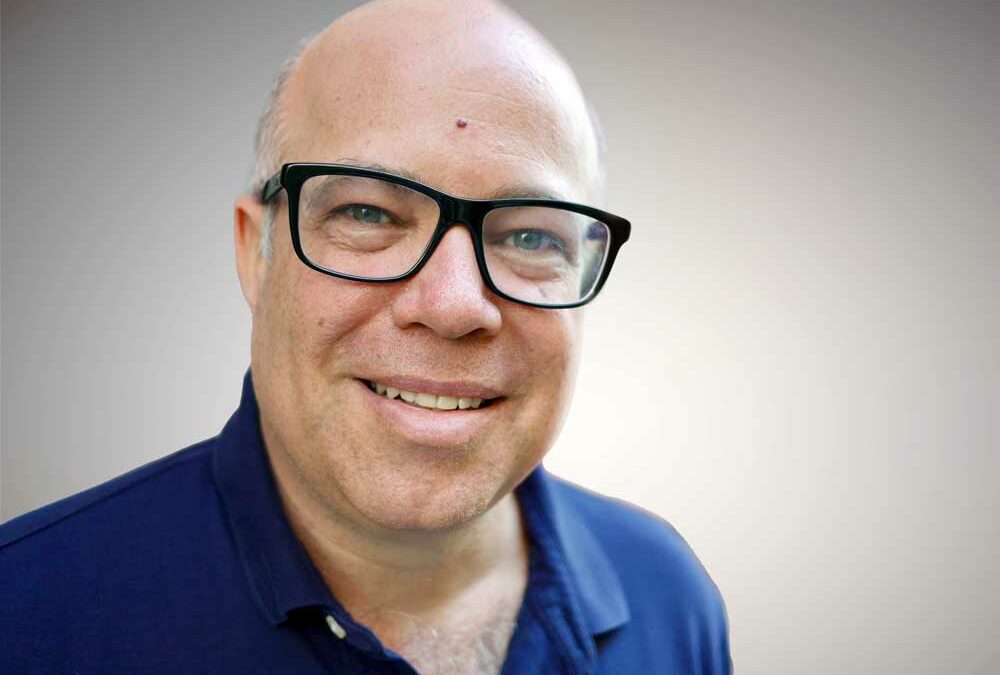Podcast: Play in new window | Download
Subscribe: Spotify | Email | RSS
Putting Emotional Intelligence Into Action with Joshua Freedman
On this week’s episode of The Leadership Habit podcast, Jenn DeWall talks to Joshua Freedman about how to put emotional intelligence into action to improve decision-making, performance and the quality of our lives.
Meet Joshua Freedman, EQ Expert
Joshua is one of the world’s leading emotional intelligence researchers. He is the co-founder and CEO of the global non-profit Six Seconds. He also owns the EQ Network group on LinkedIn with over 135k active members.
Joshua leads the world’s largest study of emotional intelligence, with breaking research coming out later this year. He is also the author of several books, including the best-selling At the Heart of Leadership: How to Get Results with Emotional Intelligence.
Joshua has helped hundreds of organizations, including FedEx, Qatar Airways, the US Navy, P&G, Microsoft, Intel, Amazon, HSBC, and the United Nations, use emotional intelligence to get better results. His work leads to a people-centered culture that strengthens leadership, sales, employee well-being, retention and innovation.
Episode Summary
As the episode opens, Jenn welcomes Joshua to the podcast, and they discuss his background as an EQ expert, author and CEO. Joshua is leading the world’s largest study of emotional intelligence and will release the 2023 State of the Heart report later this year.
A Global Human Energy Crisis
Jenn asks Joshua about his latest findings regarding emotional intelligence. Josh shares that his research finds that the complexity of the last several years has caused disconnection, isolation and burnout all around us. The emotional weight of living in “unprecedented times” is starting to wear on people.
He recalls the term coined by Kathleen Hogan, Chief People Officer at Microsoft, that we are in a “Global Human Energy Crisis.” During the height of the COVID pandemic, many work teams became more vital and agile than ever before. However, now he is seeing a decline in drive, energy and well-being. He notes that there was a similar finding after Hurricane Katrina, where people experienced a surge of resilience and energy during the height of the crisis. Still, as the recovery went on year after year, that resilience was depleted.
He explains that when people are depleted or burned out, it is more difficult to manage your emotions. People become more reactive and less understanding of others, causing more conflict in the world.
Jenn then brings up that this human energy crisis is affecting Gen Z in a massive way. Joshua agrees, saying that the data shows that Gen Z is less optimistic than previous generations, and mental health crisis-related visits to emergency rooms have also increased dramatically for them.
Resilience and Dehumanization
One common mistake leaders make is to address this human energy crisis by telling employees to practice more self-care. However, Josh reminds the audience that bubble baths cannot fix the systemic problems causing their burnout.
He provides an example of a recent meeting he had with organization leaders on a transformational project. At the same time, the company’s employees scored low on emotional resilience, emotional recovery and emotional energy. He said asking them to push this project forward was similar to asking an exhausted pilot to not only keep the plane flying but also climb outside it and fix it while it is still in the air.
Joshua points out that the US Surgeon General has recently released a framework for mental health and well-being for the first time. It includes a business case for well-being in the workplace, with citations and research showing that when people have energy, they can do more work and be more effective.
However, many leaders are making headlines by insisting that it is time to get tough, work 10-12 hour days, and sleep in the office, which is a terrible strategy. It is this attitude that is dehumanizing to workers. Leaders worth following will build an organization where people can thrive and not just survive.
How to Put Emotional Intelligence Into Action
Then, Josh explains, “The first step is to say, yeah, the emotional context of our work is central to value creation. And different organizations create value in different ways. You have a goal of how you’re going to create value, and you have a strategy for how you’re going to get there. Now, add in the culture that’s going to support that strategy, and add in the emotional conditions. What’s it like inside your organization that’s going to support that strategy. So if your strategy’s all about innovation and risk taking, you need a culture that supports innovation and risk taking. If your value creation strategy is about things being perfect, then you don’t want a culture of risk taking, right? . But you need that culture to align to your strategy. And this is the strategic use of emotions to say we can design and build a culture.”
Emotional Intelligence is a Learnable Skill
Joshua goes on to explain how to build capacity within organizational systems to grow emotional intelligence. He points that improving your emotional intelligence is possible for anyone. To facilitate that requires determining if you have people that know how to measure and grow trust. Do you have people on your team who have strong social and emotional skills? If not, it is time to focus on developing skills in the people you have or attracting the right new talent that can create a culture that builds emotional intelligence into the larger systems of the company.
He shares that he once surveyed managers, asking if they felt they had the skills they needed to support the well-being challenges of their direct reports. Only about 6% of the managers felt they had the right skills for that. He points out that management training and leadership development are crucial to addressing the problems of today.
Emotional Intelligence Competencies
Later, Jenn and Josh talk about the components of emotional intelligence that make up a vital organization. He recommends assessing the measurable learnable emotional intelligence competencies within an organization to see which skills need to be developed on your team.
As the episode concludes, Jenn asks Josh if he has any final thoughts for the audience. He shares that leaders can make a tremendous impact on the human energy crisis. He explains, “The good news is these are measurable learnable skills. And we’ve seen in so many sectors and places we’ve seen it with football players, we’ve seen it with it professionals, we’ve seen it with teachers, we’ve seen it with managers, we’ve seen it over and over and over again, that a little bit of emotional intelligence makes a tremendous difference in your effectiveness, in your relationships, and in your wellbeing and quality of life. So you can do it, and you can grow in these areas and, and it will make a difference.”
Where to Find More from Joshua Freedman
- At his nonprofit organization’s website: 6seconds.org
- On LinkedIn
- Read his books available on Amazon





